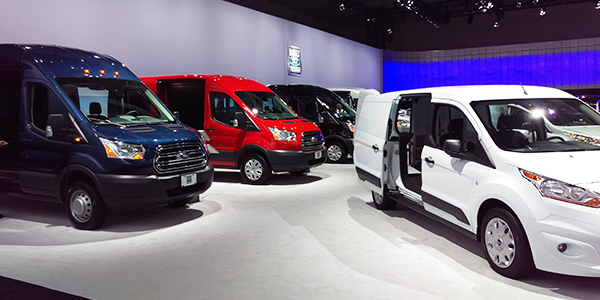Your business may now be at a point where you’re considering investing in a fleet of vehicles in order to run a smooth and effective operation. Here are some vehicle fleet basics for small and mid-sized businesses. This will be a great starting point as you continue to research the best ways to satisfy your business’s need for a fleet.
1) Know Your Business
Chances are that you are the boss, so of course you know your business. It doesn’t hurt to spend some time studying your business and where it seems to be headed. You may find that there are some significant differences now compared to when you first began or compared to a few months back for that matter. Consider the services your business offers, your capital, and the logistics you want to implement. Think about your needs and how they may or may not change in the near future. Having a good understanding of all these factors will be fundamental to wise decision-making.
Personally, you might consider your business to be small, medium or large, yet that category may differ to the way the vehicles you need are classified by the seller. This means that you may be running a small business that hauls construction materials, but the vehicles you need for that are categorized as a large business fleet. This may vary from one seller to another, and of course, there may be overlap in the types of fleet vehicles small and large businesses use. You may be wondering: Which Fleet Vehicle Is Right for Your Business? It’s an important question. Here are some basic examples of small and large businesses fleets:
| Examples of small business fleets include: | Examples of large business fleets include: |
| Catering and food delivery | Delivery |
| Cleaning service | Long haul semi-truck |
| Electrician/plumbing/HVAC | Moving |
| Florist and gift delivery | Rental car/truck |
2) What Makes More Sense, Buying or Leasing?
The answer to this question will depend on your business and will vary from business to business. Like many things in business, both options have their pros and cons. Compare the value of both options and select what makes the most sense for your business.
| Buying vs. Leasing a Fleet | ||
| Â | Pros | Cons |
| Buying | More flexibility on mileage and service | May require more money upfront |
| Freedom with branding | May incur more administrative expenses | |
| Open vehicle modifications | ||
| No penalties or fees for vehicle damage | ||
| You may get a discount from dealers for buying several cars | ||
| Leasing | Less needed on front-end | There may be branding limitations |
| Increased cash flow |  May incur wear and tear expenses upon lease expiration | |
| Able to upgrade vehicles periodically | ||
| Service package may be included | ||
| Don’t have to deal with selling a vehicle when no longer needed |
Regardless of whether you choose to buy or lease, make sure to do your homework about the different types of vehicles you are considering buying. Make sure that the vehicles have what you need in terms of size, power, fuel economy, features, and of course, price.
Make sure you buy from a reputable dealer. Consider the following:
- Look for a dealer or reseller with a dedicated fleet department.
- Cheaper isn’t always better. Choose the right vehicle first and then work out the price.
- Look for fleet discounts. Dealers and manufacturers may offer discounts when you purchase or lease a certain number of vehicles.
3) More Green for Your Business
Just as with personal vehicles, there are green alternatives for commercial vehicles, which are gaining popularity. Being mindful of your business’ carbon footprint will give you something to be proud of as well as a selling point for your business. Â You may find that a more environmentally sound fleet makes sense for your PR and your bottom line.
4) Insuring Your Fleet The Smart Way
Insuring a fleet of vehicles requires a special type of insurance known as Commercial Auto Insurance. Speaking to a Specialist will ensure you get the best coverage at a price that will look good on your balance sheet. In addition to receiving the best price from an Insurance Specialist, here are a few things you can do to increase your savings:
- Make sure your drivers have clean driving records.
- Consider installing a GPS tracking system on your vehicles so you can track them at any moment. This will prove useful should your business vehicle ever get stolen.
- Buy a fleet with rearview cameras. Your drivers will also thank you.
- Consider installing onboard cameras. This is becoming more common as a way to monitor that drivers are practicing safe driving.
- Make sure that your vehicles are equipped with alarms to deter
- Find a safe parking station or garage for your vehicles when they’re not in use.
We hope you find these basic points useful as you add a fleet of vehicles to your business. Contact a Business Insurance Specialist with any questions at 866-570-7335. They’re very knowledgeable and ready to help.
This content is offered for educational purposes only and does not represent contractual agreements. The definitions, terms, and coverage in a given policy may be different from those suggested here and such policy will be governed by the language contained therein. No warranty or appropriateness for a specific purpose is expressed or implied.


